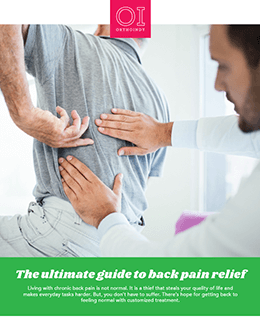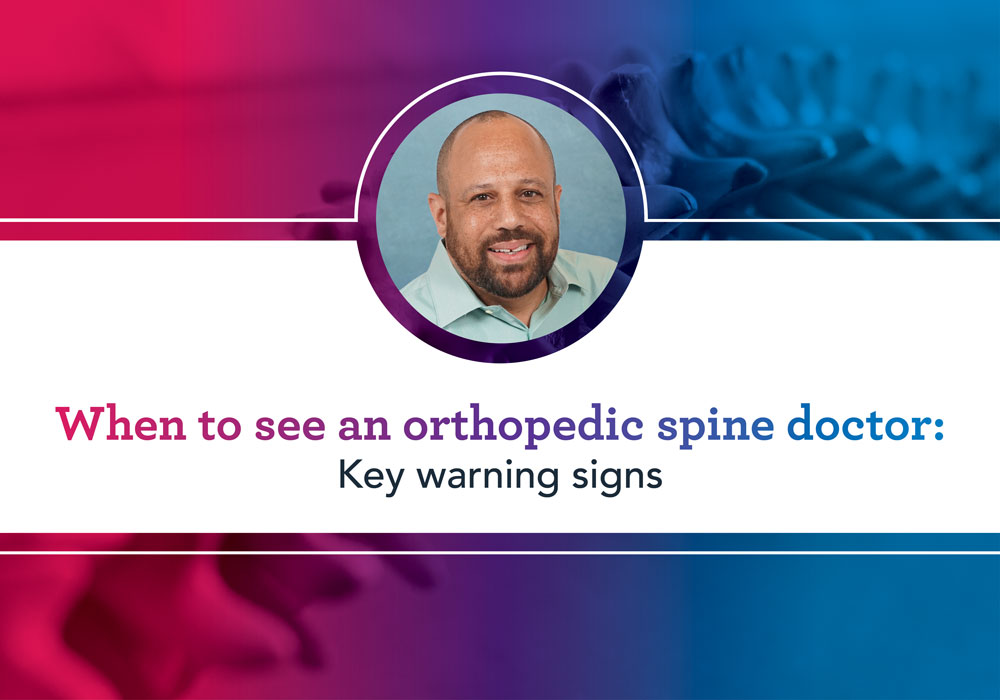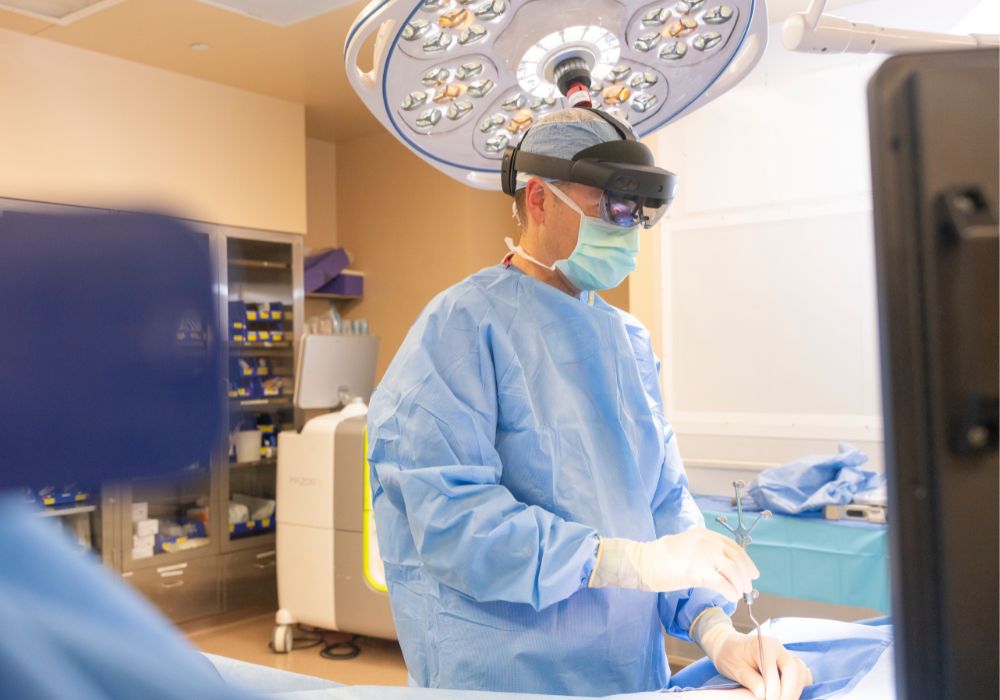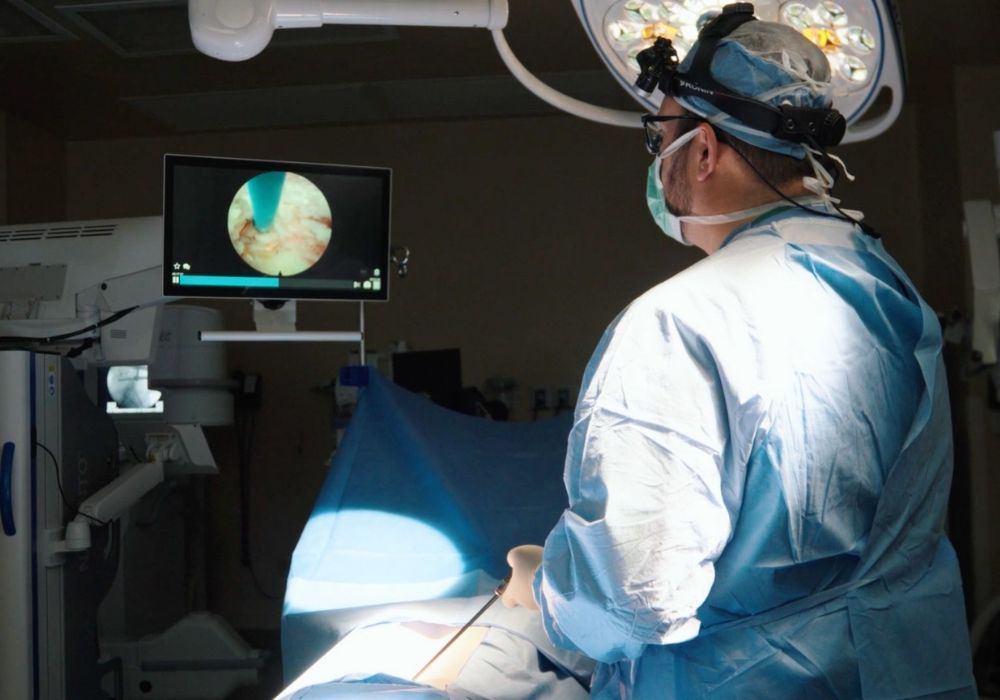There are so many different back pain causes and symptoms that it can be hard to tell if you’re feeling a pulled back muscle or something more serious. According to Harvard Health, back pain affects about four in five Americans at some point in their lives.
In this blog article, we’ll cover the causes and symptoms of a pulled-back muscle, how to care for your back pain at home, and when you should see a back doctor.
What does a pulled back muscle feel like?
Our backs have a tough job, bearing much of our body weight when we walk, lift things, or do other daily activities. This makes back injuries like strains and sprains very common. Experiencing a pulled back muscle (or back pain in general) is one of the top reasons a person seeks medical care.
Some common symptoms of a pulled back muscle include:
- Back pain that gets worse when you move
- Redness or bruising
- Muscle cramping or spasms
- Difficulty walking, bending or standing up straight
- Feeling a pop or tear in your back
Back sprain vs. back strain
What most people refer to as a pulled back muscle typically falls into one of two categories: a sprain or a strain.
A sprain is the stretching or tearing of a ligament (the fibrous bands of tissue that connect two or more bones at a joint), whereas a strain is an injury to either the muscle or tendon.
A back sprain is more likely to occur with a sudden twist, fall or other trauma that forces a joint out of place. Back strain is most often caused by an improper lifting technique or overstressing of the back muscles. If you’ve ever heard someone say, “lift with your legs,” this is why.
In addition to the causes of injury listed above, some other factors put a person at greater risk for a pulled back muscle, including:
- Being overweight
- Having weak back or abdominal muscles
- Having tight hamstrings
- Weightlifting or playing football
- Curving the low back too much
How long can it take for a pulled back muscle to heal?
Most people with a pulled back muscle will recover fully with rest and self-care within two weeks, whether it’s a sprain or a strain. It may take a few months for symptoms to go away entirely in some cases.
For the first 24 to 48 hours after you get a pulled back muscle, recommended treatments include:
- Rest
- Applying heat or ice packs
- Compression
- Over-the-counter nonsteroidal anti-inflammatory drugs (e.g., ibuprofen, naproxen)
- Over-the-counter analgesics (e.g., acetaminophen, aspirin)
If symptoms continue for more than two weeks, an examination by a doctor and additional treatment may be necessary.
When to see a back doctor about your pain
While a pulled back muscle is common and usually nothing to worry about, you should always pay attention to back pain in case something more serious is going on.
You should call an orthopedic specialist right away if you experience any of the following:
- Pain so severe you can’t walk more than a few steps
- Pain that keeps you up at night
- Numbness down your leg or in the area of injury
- Weakness in your hands or feet
- You’ve injured your lower back many times before
- You notice a lump or area with an unusual shape
Spine surgeon or a physiatrist: Who should you see?
A back specialist can typically diagnose a mild strain or sprain by reviewing your symptoms and learning how your injury occurred. Depending on the severity of the pulled back muscle, they may recommend additional treatments, such as:
- Prescription medications for pain or inflammation
- Muscle relaxant drugs
- Topical creams, gels, patches, or sprays (e.g., capsaicin, lidocaine)
- Gentle stretches
If your pulled back muscle is more severe or if you have herniated disc symptoms, your doctor may want to do an X-ray as well, to rule out any other conditions or injuries you may have.
Schedule an appointment
OrthoIndy’s expert spine team can pinpoint the cause of your back pain and recommend a treatment plan to help.
If you’ve experienced a pulled back muscle recently and need immediate care, you can walk right into one of our OrthoIndy Urgent Care locations.
For rehabilitation and physical therapy, no referral is required to see one of our physical therapists.

Get the Ultimate Guide to Back Pain Relief
Our comprehensive guide will help you understand back pain and its different causes, like sciatica, herniated disk, scoliosis, pinched nerves and more.





